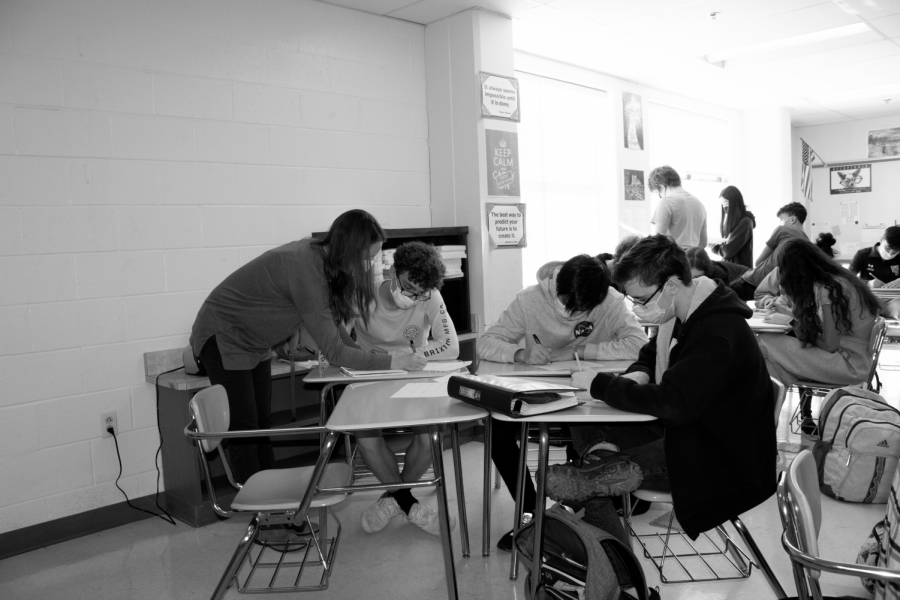Students’ grades are without a doubt determined by their teachers. We retain the information we learn in school just long enough to pass a quiz or test. How many times has your teacher said “Oh, you may recall this from last year,” but none of us have a clue what they’re referring to? Reading off the promethean board doesn’t teach us anything and copying down notes from a slideshow presentation doesn’t help either. Teachers need to build relationships with their students in order to create a meaningful imprint in their memories.
The quality of a good teacher is solely based on how they connect with their students. Without directly stating their names, I can say several teachers at WJ do an excellent job at this. I’d go as far as to say they are the favorites of the school. A script has been engraved in all teacher’s minds, when they enter the school, to say a variation of “I am here for you whenever you need something.” Those who actually mean it offer their time before school, during lunch and after school to talk to students about academics or their personal lives. They might check in on you during class and ask if you’re okay. Those who go the more robotic route say something like “come talk to me after class,” but let’s be real – no one ever does.
On the day of Baker’s Equity 365 slideshow presentation, I watched it twice. One of my teachers disregarded the majority of the slideshow and had an open discussion with the class on how we felt about the vandalism. It was engaging; students spoke up and you could tell the teacher had real concern for what their students had to say without rushing to start their lesson. The other time I saw the presentation my teacher read the slideshow word for word and had zero expression in their voice. The class sat silent and no one said a thing until the bell rang. It was quite sad.
I acknowledge that we all learn differently and taking notes as a teacher reads off the board might work for some, but for me it doesn’t. I’ll fall asleep or go on my phone because they can’t see me if they’re staring at the board. When my teacher is walking around the class and weaving in between desks during a lesson, it keeps me awake. I tend to watch them and find myself more motivated.
Lets say your teacher is going over vocab. Their goal is to turn you into an encyclopedia, but that doesn’t help when you’re applying it to a theoretical situation on a test question. When a teacher makes scenarios and has students interact with them, it is so much more beneficial. I admit that at 9 a.m. it is not what I want to be doing, yet when I take my test I think of those scenarios in my head and apply them to the concept with minimal confusion. Sure, it takes a little more effort on the teacher’s part, but in the long run they’ll probably see better grades and more participation from students.
Properly educating and connecting with students has now been covered, but what about patience and understanding? So far this year has been about readjusting to a schedule we once called normal. Many students and teachers have been struggling to get back into the routine of 7 a.m. wakeup calls and six hours spent at a desk, myself included. Seniors especially are struggling because of college application deadlines. There has not been an ease back into this schedule, in fact it’s been a slap in the face.
From class chatter I know of various teachers who do not adhere to “no new content” on Wildcat Wednesdays. And, on top of that, it seems popular to give tests on Thursdays assuming students took advantage of the “relaxing” Wednesday to study. How are we supposed to study for three or four tests all on the same day? This is a flaw in the new schedule that needs revising. The expectation to do well in class, because of the so-called “wellness day” we now have, cannot become a reality until all teachers adjust their teaching styles and support their students with genuine concern.
So what really makes you beg your counselor for that teacher you want so badly? Do you connect with them? Do they understand your situation and guide you in your studies? Do they accommodate your learning style? I hope so. That is what you should want in a teacher; however, those qualities should already apply to every teacher at WJ, not just a select few.





































